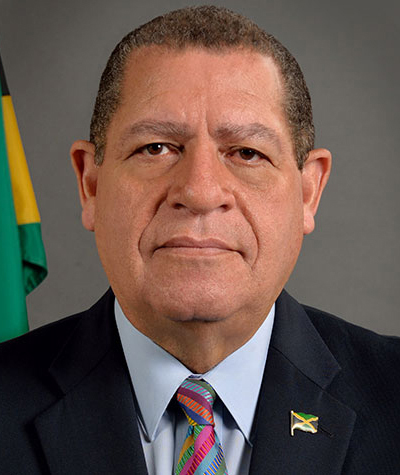As the legal barriers to the cultivation of marijuana around the world either fall like dominoes or are in the process of being dismantled and as users in potential major markets continue to warm to the prospects likely to derive therefrom, Jamaica, the Caribbean country most commonly associated with the herb, continues to push ahead in positioning itself to take advantage of the expected opportunities.
Last weekend, the island’s Ministry of Industry, Commerce, Agriculture and Fisheries disclosed that government is in the process of finalizing legislation that would clear the way for local producers to export to the world.
With the country having long popularized the use of marijuana across much of the world courtesy of its promotion through the music of its legendary reggae performer, the late Bob Marley, the Minister of Industry, Commerce, Agriculture and Fisheries, Audley Shaw, is already beginning to count the likely financial returns from marijuana exports.

Estimates which suggest that local producers of marijuana oil could potentially earn J$30 million per gallon
for exported marijuana oil have pushed the authorities in Kingston to set the end of September as the target for
the promulgation of regulations that promise to position marijuana and its by-products as a major money-earner
for Jamaica.
Last week, the Gleaner reported from the official opening of a marijuana establishment in Kingston
“I have set a target for the end of September for the regulations to be promulgated,” said Shaw on Wednesday night at the official opening of the Sensi herb house at the Pulse Centre in Kingston. Shaw disclosed that Jamaica is positioning to commence the export of extracted oil and buds from Jamaica to external markets, including Canada, Australia and Germany, which have already been targeted as likely major markets.
Up to this time Jamaica’s Cannabis Licensing Authority (CLA) has reportedly granted 54 licences to allow for marijuana-related cultivation, processing, marketing, transporting and research. The country’s next step in the direction of maximizing returns from marijuana will see “the inclusion of export permits following the enactment of the import-export regulations,” The Gleaner says.
The new draft regulations have reportedly encountered the scrutiny of various bodies for review, not least government ministries including Shaw’s ministry, the Ministry of Justice, the Attorney General’s Department and the office of the Chief Parliamentary Counsel, the Gleaner says, adding that it is now at the CLA for final review. ”Once enacted, the regulations will give the CLA jurisdiction to handle requests for the import and export of ganja buds and resin oil,” The Gleaner adds.
SENSI, the name of the firm where the disclosures were made, is a subsidiary of the larger marijuana enterprise, Marigold Ltd. The Gleaner says that SENSI now “joins a growing field of medical marijuana retail operators” in Jamaica.
Reportedly among the enterprises seeking marijuana export permits, Marigold has plans to create five Sensi Herb Houses across Jamaica, which will be partially financed by Aphira, a Canadian partner, the deal being one of the growing number of international partnership arrangements in the marijuana industry.
A possible stumbling block to the international growth of the marijuana industry is, according to the Gleaner, banking issues that have arisen in the United States where banks still appear determined to block legitimate marijuana companies from conducting transactions, whether or not the product enters the US. While marijuana is illegal in the US at the federal level, thirty -one local governments have moved to decriminalize its usage. Jamaica, according to Shaw, intends to mount a vigorous lobby to push for changes in banking transactions with the US to allow legal operators in the marijuana industry uninhibited access to banking services, The Gleaner says.
The global marijuana industry is believed to be worth US$150 billion today while Barclays, in their September 2018 European Consumer Staples Report suggests that this figure could increase to USD$272 billion by 2028.










